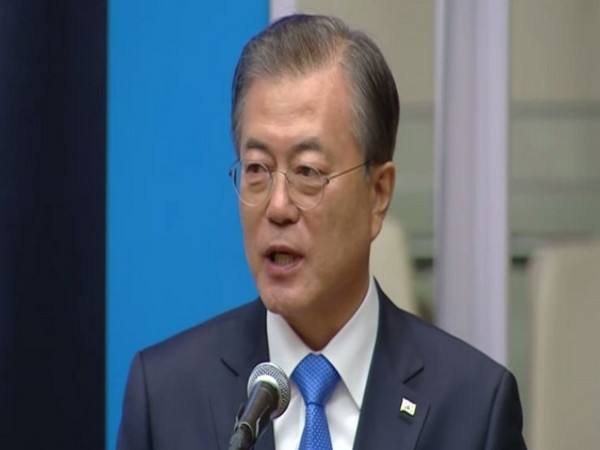
N. Korea rejects Moon's proposal of end-of-war declaration as 'premature'
Sep 24, 2021
Seoul (South Korea), September 24: North Korea on Friday rejected President Moon Jae-in's proposal to declare a formal end to the 1950-53 war as "something premature," arguing that such a declaration would be meaningless as long as the U.S. "hostile policy" remains unchanged.
Vice Foreign Minister Ri Thae-song made the rejection in a statement carried by the Korean Central News Agency, saying that an end-of-war declaration has "no legal binding force" and will "become a mere scrap of paper in a moment upon changes in situations."
"There is no vouch that the mere declaration of the termination of the war would lead to the withdrawal of the hostile policy toward the DPRK, under the present situation on the peninsula inching close to a touch-and-go situation," he said.
DPRK stands for the Democratic People's Republic of Korea, the North's official name.
During his United Nations speech earlier this week, Moon proposed the two Koreas and the United States, possibly joined by China, declare a formal end to the 1950-53 war, saying it will mark a pivotal point of departure in creating a new order of reconciliation on the Korean Peninsula.
Shortly after the statement was released, South Korea's unification ministry said the declaration holds "very important" significance as a political declaration to end the war and begin peace negotiations, as well as a starting point for denuclearization on the peninsula.
"The government will continue to strengthen cooperation with relevant countries through various opportunities and to make efforts in pushing forward the peace process, including the end-of-war declaration," Cha Deok-cheol, deputy spokesperson of the ministry, told a regular press briefing.
In the statement, Ri said that the declaration will entail "disastrous consequences" that could upset the strategic balance in the region and push the two Koreas into an unending arms race.
He stressed that the withdrawal of the U.S. hostile policy is the "top priority" in bringing peace and stability to the Korean Peninsula.
"It should be clearly understood that the declaration of the termination of the war is of no help at all to stabilizing the situation of the Korean peninsula at the moment but can rather be misused as a smokescreen covering up the U.S. hostile policy," he said.
Ri, however, also said the declaration holds symbolic meaning and the termination of the war is "what has to be dealt with for the establishment of a peace-keeping mechanism on the peninsula in the future."
Ri then took issue with Washington's test-firing of the Minuteman III intercontinental ballistic missile in February and August, and its recent decision to help build nuclear-powered submarines for Australia.
"The DPRK's just measures to bolster up the capability for defense to cope with the U.S. military threat to bring us down by force are described as 'provocations' while the arms buildup escalated by the U.S. and its vassal forces to threaten the DPRK is justified as 'deterrent,'" he said.
The North recently fired two short-range ballistic missiles into the East Sea following a long-range cruise missile test, raising concerns the latest launch could ratchet up tensions on the peninsula.
Nuclear talks between Washington and Pyongyang have remained stalled since the Hanoi summit in 2019 between then U.S. President Donald Trump and North Korean leader Kim Jong-un ended without a deal.
Source: Yonhap






